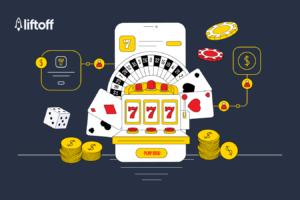KSA chair René Jansen calls for spending limits on online gambling

René Jansen made the comments at the European Association for the Study of Gambling conference.
The Netherlands.- The chair of the Dutch gambling regulator De Kansspelautoriteit (KSA) has suggested that the Netherlands should impose spending limits for online gambling. René Jansen said he believed limits could help to control gambling behaviour and protect consumers from harm
Speaking at the European Association for the Study of Gambling (EASG) conference, he said that research by the KSA suggested that the Netherlands had adopted fewer measures than other regulated markets in Europe when it comes to protecting players from gambling harm. He noted that many countries require players to set deposit limits, which remain optional in the Netherlands.
However, he added that any limit would not be an excuse for operators to “sit back” and wait for customers to reach the limit, but that they had a duty of care to be attentive to player behaviour.
He said: “I increasingly wonder whether we offer sufficient protection and safety to players with the current interpretation of the duty of care. I see that the behaviour of gambling providers still leaves a lot to be desired.
“Tightening up the duty of care is therefore not an unnecessary luxury and we can learn from other countries, but the ultimate choice lies with the legislator.”
Dutch regulator orders LCS Limited to stop offering gaming in the Netherlands
Earlier this week, the KSA ordered Malta-based LCS Limited to stop targeting customers in the Netherlands. It’s issued a cease and desist order against the company after finding that its Son of Slots brand was offering gaming to Dutch customers without a KSA licence.
If LCS does not comply with the cease and desist order, it could face a penalty of €55,000 per week, up to a maximum of €165,000.
Meanwhile, the KSA has reported that there are now more than 20,000 people registered on the Netherlands’ Centraal Register Uitsluiting Kansspelen (Cruks), the exclusion system for the regulated gaming industry.
It also reported that by the end of last month, the Cruks database had been consulted more than 148 million times.
The system launched at the start of October when regulated online gaming went live in the Netherlands. Both online and land-based gaming operations must check players against the database before allowing them to gamble. It allows people to self-exclude for a minimum period of six months, but people can also be placed on the list against their volition if the KSA approves a request from a family member of gambling operator.











